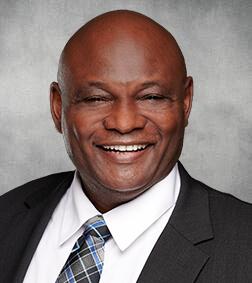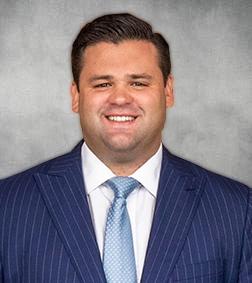Florida Sex Crimes Attorney
What Constitutes a Sex Crime?
Ultimately, a sex crime is an offense that takes place when a person (either male or female) sexually abuses or instigates forced sexual encounters by means of psychological and physical manipulation. The following offenses constitute as sex crimes in the state of Florida:
- Bestiality
- Child Exploitation
- Child Molestation
- Child Pornography
- Federal Sex Crimes
- Forcing Another To Become A Prostitute
- Human Trafficking
- Indecency With A Child
- Indecent Exposure
- Injunction
- Internet & Computer Sex Crimes
- Lewd & Lascivious Crimes
- Pimping & Pandering
- Prostitution
- Rape
- Retail Display of Pornography to a Minor
- Sale or Distribution to a Minor
- Sex Trafficking
- Sexting
- Sexual Assault
- Sexual Battery
- Sexual Predator Act
- Sexual Tourism
- Solicitation
- Stalking
- Voyeurism
Florida Sex Crime Laws, Penalties, & Legal Defenses
Although a person who is charged with a crime in Florida is “presumed innocent until proven guilty beyond a reasonable doubt,” a person facing a charge for sex crimes may feel like he or she has the burden of proof. Sex crime charges come with an incredible about of public scorn and ridicule to the extent that the person charged could feel like he or she is presumed guilty. People might hear the charge and assume that the accused is a pervert or a predator. The public perception of a person charged — let alone convicted — of a sex crime is hard to overcome.
Notwithstanding the public perception of a person charged with a sex crime, someone who is charged with a Florida sex crime is entitled to an attorney to defend his or her liberty and fight for justice. The person accused of a sex crime in Florida is afforded the same constitutional rights as every other individual charged with a crime in the state.
Criminal Sexual Behavior in Florida
Florida statutes include numerous sex-related crimes. Florida’s laws try to capture every possible human activity related to sexual misbehavior and deviance. However, sex crimes in Florida could be broken down into subcategories such as prostitution, lewdness, sexual battery, lewd and lascivious conduct, indecent exposure, and solicitation of children through electronic devices.
Prostitution Offenses
Chapter 796 of the Florida statutes define prostitution offenses. However, 796.07 is the law that prohibits and criminalizes the act of prostitution as well as solicitation of a prostitute. Section 796.07 also seeks to punish people who turn private property into houses of ill repute and massage parlors into places in which lewd acts may be performed. The provisions of 796.06 penalize renting property for the purpose of performing lewd acts or running a prostitution ring from the rental property. Furthermore, 796.04 criminalizes attempts made by a person to compel another into prostitution. Section 796.05 outlaws pimping or deriving support from prostitution.
Sexual Battery
Sexual battery is a broad category of offenses described in greater detail in Chapter 794 and Chapter 800 of the Florida statutes. Sexual battery encompasses sexual assault, sometimes known as indecent assault, and rape charges, including statutory rape. The severity of the penalties imposed on a person convicted under Chapter 794 depend on the underlying facts of the incident, the age of the perpetrator, the age of the victim, the status of the perpetrator as a figure of authority, and other aggravating factors such as the presence of or threat of a weapon, and prior sexual offenses.
Section 794.11 defines sexual battery as vaginal, anal, or oral penetration or union with the sex organ of another person as well as penetration of those regions with another object without consent. Consent under the statute may only be given freely, voluntarily, and intelligently. Consent is not free if it was the product of undue influence. Additionally, a person does not communicate consent by refusing a physical altercation or fighting back.
Lewdness and Indecent Exposure
Lewdness under Florida statutes Chapter 800 is related to the crime of sexual battery as described in Chapter 794. Section 800.04 criminalizes sexual activity with a person who has attained the age of 12 but is younger than 16 years of age. This crime is typically referred to as statutory rape. Ignorance of age or believing the age of the victim to be older, even if by misrepresentation, is not a defense to this crime. Additionally, the statute criminalizes other acts such as lewd molestation and lewd and lascivious conduct in which one person touches the sex organs of others without consent or cannot consent because of age.
Section 800.4 extends to acts described as a lewd and lascivious exhibition or indecent exposure whereby a person displays his or her genitalia in a lewd manner in public.
The specific penalty for each individual offense is contained within each section of the statute.
Protection of Children from Harmful Sexual Material
Chapter 847 prohibits the creation and dissemination of obscene matters. Specifically, the statute is designed to prevent the sexual exploitation of minors and protect them from the deviant and prurient interests of consenting adults. For example, showing obscene material to a minor is a third-degree felony pursuant to 847.0133.
The question arises, therefore, what is to be considered obscene under Florida law? Under 847.001, obscenity is material that an adult would object to under today’s prevailing standards because the object appeals to the prurient interest, depicts sexual conduct in an offensive manner, and as a whole has no value in literature, artistically, politically, or scientifically.
Understanding Terms Related to Sexual Battery
To fully understand the laws concerning sexual battery in the State of Florida, here is a closer look at some terms outlined in Florida Statute Title XLVI Chapter 794.011(1, a-j):
- “Consent” refers to completely voluntary consent and does not involve any form of forced sexual approaches or intimacy. This does not refer to the failure or unwillingness to resist and fight the perpetrator.
- “Mentally incapacitated” refers to the temporary impairment of an individual to the point that he/she cannot control their conduct due to the presence of a narcotic, anesthetic, or other intoxicating drug that the culprit administered without the victim’s consent.
- “Offender” refers to a person who commits an act of sexual assault.
- “Physically helpless” refers to a situation where the victim cannot effectively communicate or physically defend himself/herself against the culprit.
- “Retaliation” refers to a situation when a culprit threatens the victim with physical violence, psychological abuse, or forced sex.
- “Sexual battery” refers to a situation when a culprit forcibly violates a person by means of oral or regular penetration with sexual organs or other objects.
- “Victim” refers to a person who has been sexually attacked.
Committing an Act of Sexual Assault
As outlined in Florida Statute Title XLVI Chapter 794.011 (2-3), a culprit who commits an act of sexual battery or attempts to commit this act on the sexual organs of a victim may be punished in one of two ways, depending on the age of the offender and the victim:
- Chapter 794.011(2a): Any person who is 18 years of age or older who commits this offense and injures the sexual organs of a victim who is less than 12 years of age will be charged with a capital felony.
- Chapter 794.011(2b): Any person younger than 18 years of age who commits this offense and injures the sexual organs of a victim who is less than 12 years of age will be charged with a felony, punishable by life imprisonment and/or a fine of $15,000.
- Chapter 794.011(3): Any person who commits this offense by threatening the victim with a deadly weapon or actually uses physical violence (which can result in serious injuries) will be charged with a life felony.
- Chapter 794.011(4a): Any person who is 18 years of age or older who commits an act of sexual assault or attempts to commit this act on the sexual organs of a victim as young as 12 years but no older than 18 years will be charged with a 1st-degree felony, punishable by a fine of $10,000 and/or imprisonment that does not exceed 30 years.
- Chapter 794.011(4b): Any person who is 18 years of age or older who commits an act of sexual assault or attempts to commit this act on the sexual organs of a victim who is 18 years or older will be charged with a 1st-degree felony, punishable by a fine of $10,000 and/or imprisonment that does not exceed 30 years.
- Chapter 794.011(4c): Any person younger than 18 years who commits an act of sexual assault or attempts to commit this act on an individual who is older than 12 years of age will be charged with a 1st-degree felony, punishable by a fine of $10,000 and/or imprisonment that does not exceed 30 years.
Committing an Act of Sexual Abuse
In the event that the sex crime does not involve the use of physical violence as part of coercion tactics, culprits may face one of several punishments, depending (once again) on the ages of the culprit and victim involved, as dictated in Chapter 794.011 (5, a-c):
- Chapter 791.011(5a): Any person 18 years of age or older who commits sexual battery against a victim who is at least 12 but not older than 18 years of age will be charged with a 1st-degree felony, punishable by a fine of $10,000 and/or imprisonment that does not exceed 30 years.
- Chapter 791.011(5b): Any person 18 years of age or older who commits sexual battery against a victim who is 18 years of age or older will be charged with a 2nd-degree felony, punishable by a $10,000 fine and/or a prison sentence that does not exceed 15 years.
- Chapter 791.011(5c): Any person younger than 18 years of age who commits sexual battery against a victim who is 12 years of age or older will be charged with a 2nd-degree felony, punishable by a $10,000 fine and/or a prison sentence that does not exceed 15 years.
Committing an Act of Sexual Battery by Multiple Culprits
If the crime involved more than one perpetrator, the Florida Legislature reclassifies charges and punishments depending (once again) on the nature of the crime itself. As dictated by Florida Statute Title XLVI Chapter 794.023 (2), the court can reclassify the crime if they can prove (without any doubt) that more than one perpetrator was involved in the transaction of sexual battery or assault. Under these circumstances, the punishment of a 2nd-degree felony will be switched to a 1st-degree felony, while a 1st-degree felony will be transferred to a life felony.
Sexually Battering a Student
Under the category of sexual assault (in the category of indecent exposure), Florida Statute Title XLVI Chapter 800.101 dictates that authority figures (people 18 years and older) who work at a school or any organization related to a school cannot initiate and/or engage in any sexual conduct or a romantic relationship with a student. Any individual who breaks this law will be charged with a 2nd-degree felony, punishable by a $10,000 fine and/or a prison sentence that is no longer than 15 years.
Keep in mind that this crime does not fall under the same category as crimes committed by a teacher as outlined in Title XLVI Chapter 775.0862.
Human Trafficking for Sexual Purposes
RAINN identifies human trafficking for the purpose of sexual activity as a variety of sex crimes directed towards children and adults.
Under Florida Statute Title XLVI Chapter 787.06, human trafficking is regarded by Florida Legislature as a variety of modern slavery, in which humans are transported for the purposes of being sold and harbored (in the same manner as material goods). In this case, trafficking becomes a sex crime when adults and children are sold for prostitution, the sexual entertainment industry, or additional shady purposes related to sexual activity:
- “Commercial sexual activity” refers to the breaking of Statute 796 or an attempt to do so for the grounds of producing and/or selling pornography and performances that are sexually explicit.
- “Services” may refer to the duties of the victim, such as forced marriage or performing sexual acts on a number of clientele.
- “Sexually explicit performances” are live or recorded acts or shows (for either private or public displays) that are designed to sexually arouse or stimulate the buyers.
Chapter 787.06 (4) defines four different forms of punishment, depending on the severity of the crime:
- If the perpetrator is a parent, guardian, or supervisor of the victim, this individual will be charged with a life felony, punishable by life imprisonment and/or a fine of $15,000.
- If the culprit brands the victim for the purpose of human trafficking, this individual will be charged with a 2nd-degree felony, punishable by a $10,000 fine and/or a prison sentence of no more than 15 years.
Stalking a Victim
As dictated by Florida Statute 784.048 (3), any person who willingly, maliciously, and continuously pursues, harasses, or cyberstalks a victim will be charged with a 1st-degree misdemeanor, punishable by a $1,000 fine and/or a prison sentence that does not exceed 1 year.
As shown in Chapter 784.048 (4), people who have previously been charged with sexual harassment via stalking and who commit an act of this nature again (resulting in damage to the victim’s property) will be charged with a 3rd-degree felony, punishable by a $5,000 fine and/or a prison sentence that does not exceed 5 years.
On a different note, Chapter 784.048(5) dictates that any person who stalks or cyberstalks a child who is 16 years of age or younger will be charged with aggravated stalking (considered a 3rd-degree felony), punishable by a $5,000 fine and/or a prison sentence that does not exceed 5 years.
Defining “Cyberstalking”
FS Title XLVI Chapter 784.049 defines cyberstalking as a situation when a culprit shares an image depicting the victim, who is posing in a sexually explicit manner (intended to be private) or has been photographed unintentionally. In this case, “sexually explicit images” refer to any images that depict nudity.
Determining a Valid Case for Sexually Assaulting a Minor
As indicated by the Florida Statutes, Chapter XLVI, § 794.011(2)(a) and (2)(b), instructions listed for members of a Criminal Jury highlighted in Case 11.1, members of the court must prove (without any shred of doubt) that the defendant:
- Used his/her sexual organs (or an object) to penetrate or unite with the sexual organs or mouth of the victim.
- Injured the victim as a result.
Please review Chapter 11 for details about sexual crimes.
Using a Victim’s Age as a Means of Defense
As indicated by Florida Statute Title XLVI Chapter 794.021, on the grounds that the victim’s age directly influences the severity of the crime, the culprit cannot use this age as a means of defense in court. Neither a misrepresentation of the victim’s age (presented by the victim himself/herself) or a belief that the victim was a certain age can be used to defend the culprit.
Prosecution of Sex Crimes in Florida
Investigating and prosecuting sex crimes is a difficult task. Many allegations of criminal sexual behavior are not corroborated by any physical evidence, but the state’s attorney will advance the case to trial despite an insufficient investigation, nonetheless, because of a prosecutorial bias toward sexual assault victims. Alternatively, the police will proceed through a quick investigation together to clear the open case rather than nail down the perpetrator with solid evidence. Rushing to judgment risks arresting and charging the wrong person for the crime.
One of the most common infirmities in a sexual crime case is the problem of delayed disclosure. Delayed disclosures are often a component of crimes in which the victim and the alleged perpetrator are known to each other, but not always. A delayed disclosure occurs when the alleged victim tells someone about what happened to him or her well after the event occurred. In child sexual abuse cases particularly, prosecutors will attempt to hire an expert to talk about why delayed disclosures are common and are not indicative of fabrication.
Many prosecutors harbor the belief that an alleged victim of a sexual crime always tells the truth. The proposition is not true. Crime victims are fallible human beings who hold grudges, believe faulty memories, have biases toward certain people and are susceptible to suggestions. Their stories must be subject to thorough cross-examination. Thus, the person accused of sex crimes in Florida should complete an extensive and intensive factual investigation before trial, so his or her lawyer can prepare a thorough and effective cross-examination of all of the government’s witnesses. Additionally, facing a false allegation of sexual abuse can ruin a person’s life at home, at work, and in the community. Even winning an acquittal might not completely restore a person’s reputation fully. Fabricating allegations of sexual crimes not only ruin the life of the person accused, but it also undermines the integrity of the real victims of sexual abuse.
Undercover Sting Operations
Florida law enforcement officials have made a reputation for themselves by using undercover operatives to infiltrate prostitution rings, human trafficking operations, and street-level sexual behavior. People old and young, rich and poor have fallen prey to undercover stings conducted by zealous police officers.
Stings can take many forms. Officers could pose as children and talk to people online. Female police officers could dress like a prostitute to conduct a “john” sting. Also, officers could post fake advertisements on internet websites such as Backpage and others to lure a “john” to ensnare him in an attempt to solicit a prostitute or distribute pornographic imagery of children.
One of the defenses available to a person accused of a sexually-based crime is entrapment. Florida Statutes 777.201 lists the elements of entrapment. Entrapment under Florida law is an affirmative defense available for the accused to argue when a police officer has violated the accused’s due process rights. Entrapment arises when a police officer enticed or persuaded the accused to commit a crime provided that the methods employed by the agent of the police to overcome the person’s will were such that the police agent created a substantial risk that an otherwise innocent person would commit the crime. Put another way, the question to as is whether the person charged was “predisposed” to commit the act?
The person accused of a crime has the burden to prove that he or she committed the crime he or she faces because the police entrapped the individual. The defendant is entitled to an acquittal if he or she has the met burden to “prove entrapment by a preponderance of the evidence.” A jury or judge, whoever is sitting as the trier of fact in the case, has the sole responsibility to decide the issue.
The person accused of the sex crime of solicitation also has a statutory defense of withdrawal, also known as the affirmative defense of renunciation. Florida statutes 777.04(5)(a-c) delineate the elements of withdrawal that the accused must show to argue successfully he or she withdrew from the criminal enterprise. To successfully withdraw from soliciting, the accused must have voluntarily and completely withdrawn from the criminal enterprise, and
- Prevented the crime from taking place or abandoned the criminal enterprise;
- Persuaded the person the accused solicited to join the criminal enterprise to abandon the criminal design; or
- Stopped co-conspirators from committing the crime as agreed.
CODIS
The Federal Bureau of Investigation (FBI) maintains a database known as Combined DNA Index System, also referred to as CODIS. CODIS houses the deoxyribonucleic acid (DNA) profiles of convicted offenders, in addition to unknown biological profiles from suspected offenders obtained from crime scenes. Law enforcement agencies have the ability to upload unknown profiles to the CODIS database and compare the alleged perpetrator sample to those in the database in an attempt to find a “match.”
CODIS “hits” are inadmissible in court without confirmation, but they can alert police to the identity of the suspect. If there is a positive CODIS “hit,” crime scene analysts must obtain a sample from the person whose profile appears in CODIS and compare that with the suspected perpetrator’s sample found at a crime scene to be admissible in court.
CODIS is a very powerful law enforcement tool. Jurors find DNA match evidence compelling. Despite jury instructions to the contrary, the jury could find DNA evidence conclusive. However, scientific evidence is not infallible. Analysts can make mistakes and can also fabricate results. Anyone facing sex crimes in Florida must examine all of the evidence in the government’s possession closely and pursue every defense available to avoid a wrongful conviction.
Possible Penalties for Sex Crime Convictions
Florida statutes 775.082 list the possible incarcerated sentences for crimes in Florida. The specific charge of which the accused was convicted will dictate whether the crimes is a capital felony, life felony, first-degree felony, second-degree felony, a third-degree felony, a first-degree misdemeanor, or a second-degree misdemeanor.
Some sex crimes, such as solicitation of a prostitute, are misdemeanor charges that carry no greater than a one-year jail sentence for a first offense. The offender could also qualify for diversion programs as well depending on the person’s prior criminal history. However, a person convicted of other crimes of sexual violence or with underage victims that caused grievous bodily injury could be sentenced to death or life in prison without the possibility of parole for committing a capital felony. Other convictions carry a sentence of up to life with the potential for parole, or term of years.
The offender will likely receive a period of probation, in addition, to be served after the incarcerated portion of his or her sentence.
Collateral Consequences
Registration as a Sex Offender or Sexual Predator
Many sex offenses committed in Florida will result in the convicted person registering as a sexual predator or as a convicted sex offender with the sheriff in the county in which he or she resides. The duty of a person to register is separate and apart from prison sentences and any probationary terms imposed by the court. However, the judge can make a written finding that the defendant is a sexual predator and mandates reporting.
Under Florida statutes 943.435, a person convicted of certain offenses must register as a sexual offender. The term conviction as used in this section is broad and includes pleas of nolo contendre as a guilty plea.
Florida statutes 775.21 is the Florida Sexual Predators Act. The law is a comprehensive piece of legislation geared at preventing sexual predators from committing additional acts of sexual violence. The statute requires registration and may also include forfeiting internet connections, as well. Furthermore, the statute requires the sheriff’s office with whom the offender registered to publish notice to the public about the offender.
Residency Restrictions
Florida statutes 775.215 limits a convicted sex offender’s ability to reside in specific areas. A person meeting the requirements of this section must live at least 1,000 feet away from a school, park, or daycare as defined by statute.
Protect Your Future with Musca Law
Sex crime allegations can be devastating, not to mention humiliating. If convicted, you face prison time, exorbitant fees, and lifetime sexual offender or sexual predator registration. Musca Law’s experienced Florida sex crimes lawyers know how threatening these severe consequences and hostile prosecutors can be. We work diligently to ensure that your rights are upheld and that you receive the best possible defense. In many cases, sex crime allegations are brought about due to innocent circumstances and complex family dynamics. The criminal justice system isn’t impervious to mistakes, and our Florida criminal defense team can shed light on your situation and use proven methodologies to build your defense. At Musca Law, we know that everyone is entitled to fair representation and to having their story heard. Our knowledgeable sex crimes attorneys are available 24 hours a day, 7 days a week to serve as your advocates and fight aggressively to defend your rights.









































